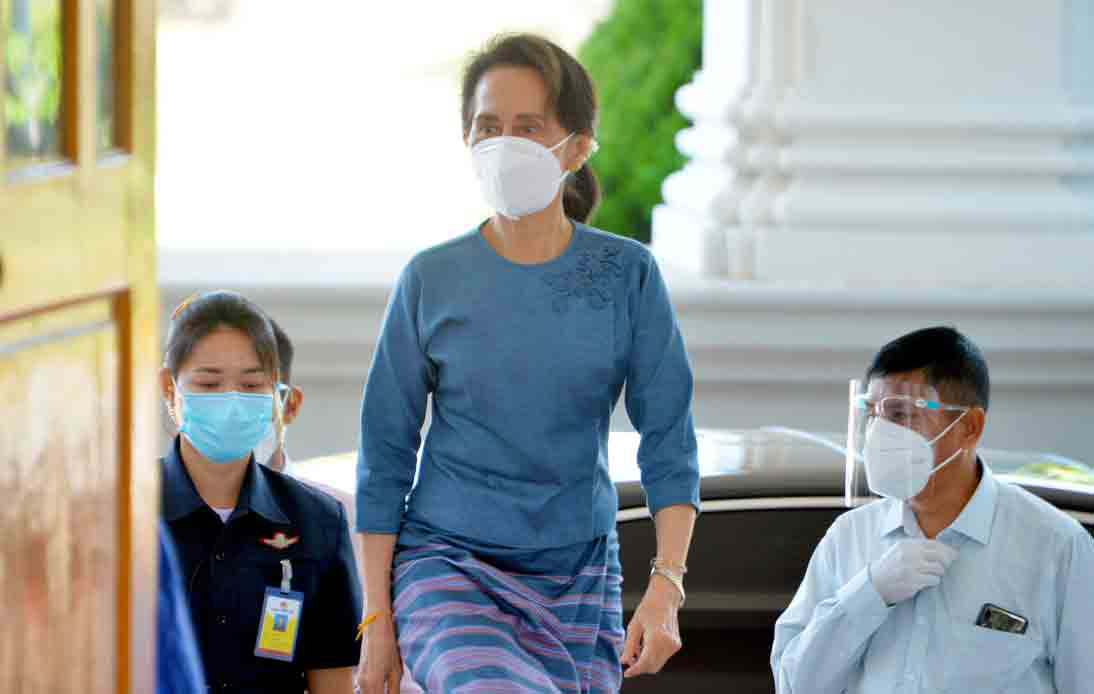
The trial of Aung San Suu Kyi, Myanmar’s elected leader who was overthrown in the February 1 coup, officially began four months after the military removed the elected government from office.
She faces various charges, including possessing unlicensed walkie-talkies and violating COVID-19 restrictions. Moreover, she is scheduled to appear in court in subsequent trials for allegations of corruption and violation of the official secrets act.
However, human rights groups have condemned the trial on the grounds that it is an attempt to prevent Ms. Suu Kyi from running in future elections.
The 75-year-old woman has been under house arrest since the military seized the power on February 1 in Myanmar, also known as Burma. Her lawyers, who have met with her only twice since she was arrested, began to question witnesses about the allegations on Monday.
Another trial is scheduled to begin June 15 on charges of sedition.
If found guilty, Ms. Suu Kyi could face up to 14 years in prison. Besides, last week, she was handed additional corruption charges on allegations that she illegally accepted bribes of $600,000 in cash and around 11 kilos of gold.
Corruption charges can be punished with a maximum jail term of 15 years.
Violating the official secrets law carries a maximum prison sentence of 14 years. Additionally, violating telecommunications law by importing walkie-talkies carries a maximum penalty of one year in jail, and breaking import-export laws by illegally importing walkie-talkies could lead Ms. Suu Kyi to spend three years behind bars.
She could also face three years in jail for each count of violating a natural disaster law and another three years in prison for inciting public disturbances.
“There is an undeniable political background to keep her out of the country scene and to smear her prestige,” her lawyer Khin Maung Zaw told the media last week. “That’s one of the reasons to charge her – to keep her out of the scene.”
The army has justified the coup, alleging electoral fraud in the 2020 general elections.
However, independent election observers and political movements have claimed that the elections were mostly free and fair. The coup triggered massive demonstrations with brutal repression by the military.
According to the monitoring group Assistance Association for Political Prisoners (AAPP), at least 800 people have died, and almost 5,000 have been injured since then.




















